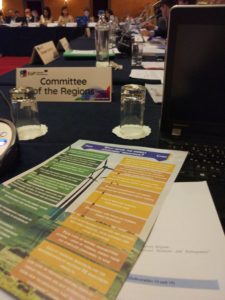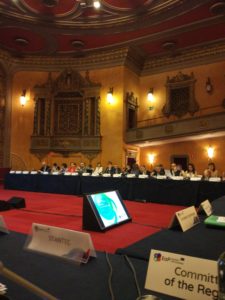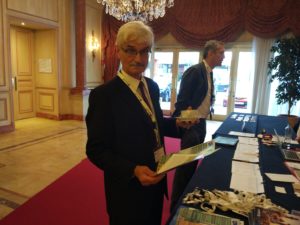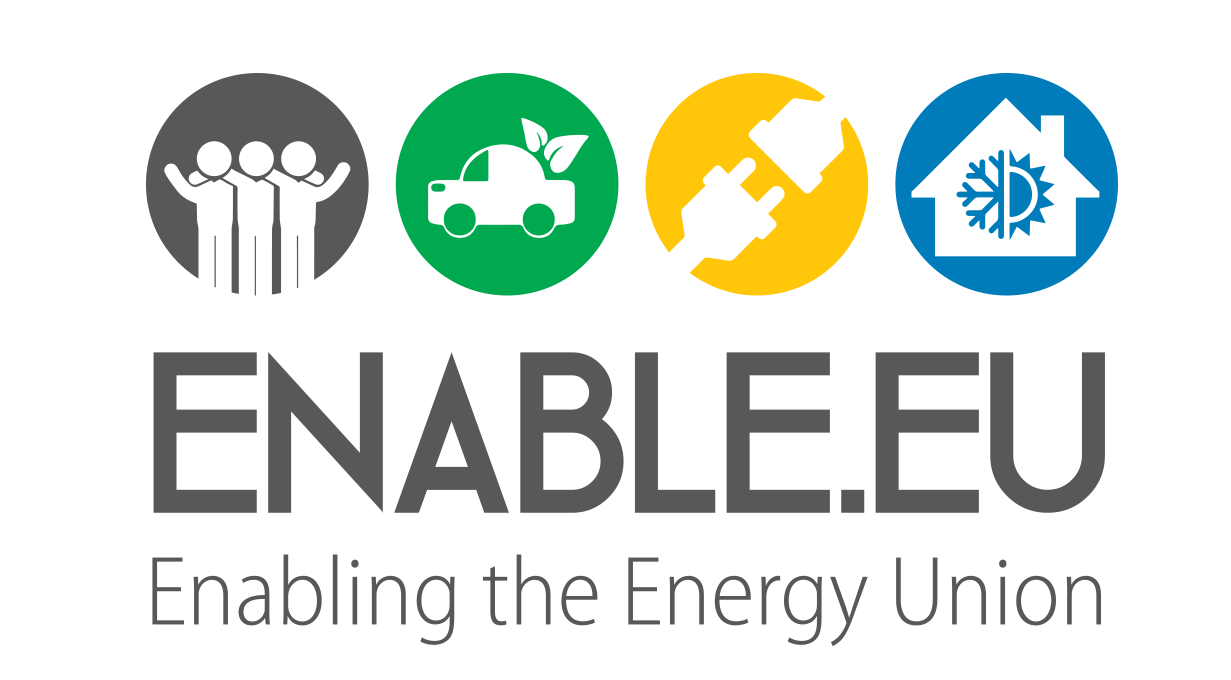 The Centre for Global Studies “Strategy XXI” (CGSS21) presented ENABLE.EU’s research to the Third Energy Panel of the Eastern Partnership (EaP) on June 17, 2019 in Brussels. The event was organized by DG Energy at the European Commission.
The Centre for Global Studies “Strategy XXI” (CGSS21) presented ENABLE.EU’s research to the Third Energy Panel of the Eastern Partnership (EaP) on June 17, 2019 in Brussels. The event was organized by DG Energy at the European Commission.
Igor Stukalenko, Head of the Energy Programs of CGSS21, gave an overview of the ENABLE.EU project and presented the factors that influence consumers’ decisions to use energy efficient technologies and equipment, and households’ decisions to install solar panels and to become prosumers. “Energy efficiency and renewable energy sources will be among 20 deliverables of the Eastern Partnership by 2020. Twelve European think tanks, including theCentre for Global Studies “Strategy XXI”, will implement the ENABLE.EU project as part of the EU Horizon 2020 programme. It is focused on consumer behavior, and why they choose energy efficient technologies or renewable energy sources,” said Mr. Stukalenko.
 In Ukraine, the most important factors that encourage consumers to be energy efficient and use renewable energy are: available state and local support programmes for energy efficiency measures, grants and affordable bank loans; success stories of applying energy-saving technologies and mechanisms; a clear composite of energy and utility bills with economy-based prices; available new energy-saving technologies and the desire to be up-to-date with them;long-term information campaigns to stimulate energy saving in households. Factors that discourage the adoption of energy efficient and prosuming behaviour include: unmonetizedsubsidies for energy resources and heating and electricity tariffs; resistance to change, even positive changes; unjustifiably low prices on thermal energy resources; theabsence of a clear and well-coordinated state policy to inform the population about energy-efficient technologies.
In Ukraine, the most important factors that encourage consumers to be energy efficient and use renewable energy are: available state and local support programmes for energy efficiency measures, grants and affordable bank loans; success stories of applying energy-saving technologies and mechanisms; a clear composite of energy and utility bills with economy-based prices; available new energy-saving technologies and the desire to be up-to-date with them;long-term information campaigns to stimulate energy saving in households. Factors that discourage the adoption of energy efficient and prosuming behaviour include: unmonetizedsubsidies for energy resources and heating and electricity tariffs; resistance to change, even positive changes; unjustifiably low prices on thermal energy resources; theabsence of a clear and well-coordinated state policy to inform the population about energy-efficient technologies.
Prosumers are motivated by the following: saving money by reducing their electric bills; low maintenance costs; contributing to the environment and reducing their carbon footprint. At the same time, there are negative aspects for prosumers: the high initial costs of purchasing a solar power system; the dependence of solar panels on weather to effectively gather solar energy; limited possibilities for storing solar energy; and an unclear and unpredictable governmental policy regarding prosumption.
 “Ukrainian governmental bodies and EU institutions should take these factors into account to draft effective policies, strategies and mechanisms,” stated Mr. Stukalenko.
“Ukrainian governmental bodies and EU institutions should take these factors into account to draft effective policies, strategies and mechanisms,” stated Mr. Stukalenko.
